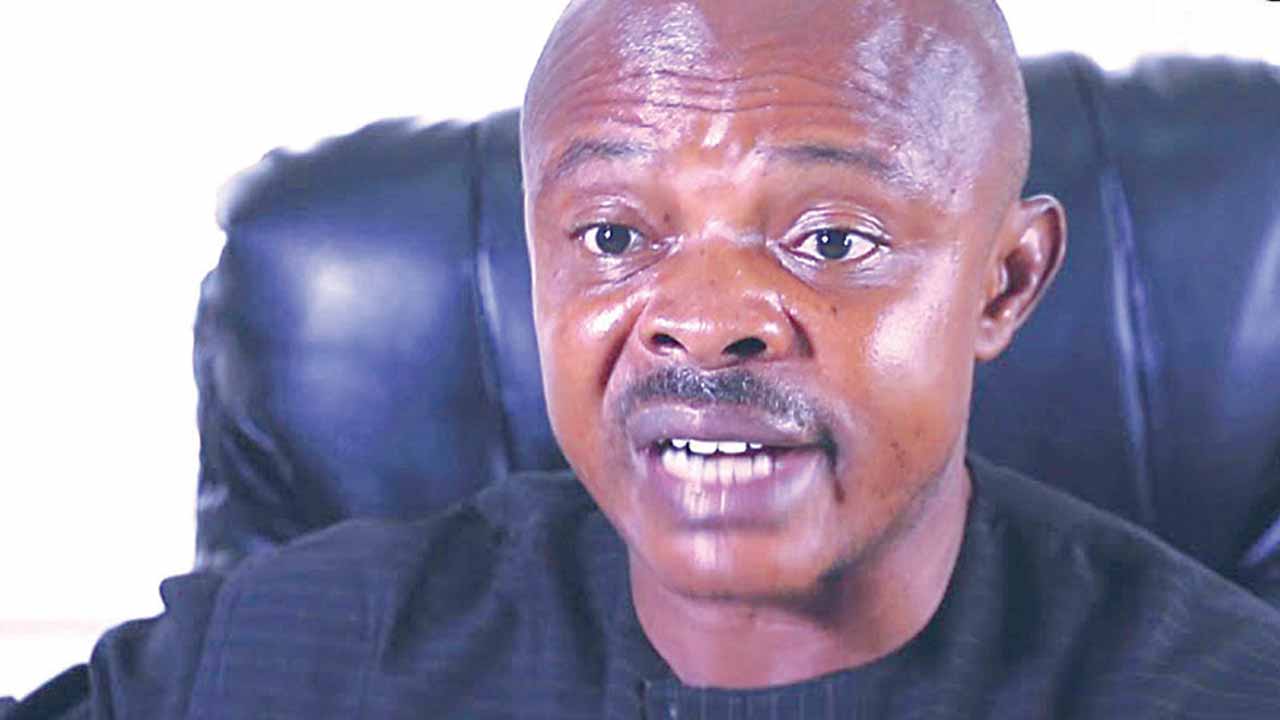New minimum wage: Is labour not looking too high?
The great expectation in labour circles across Nigeria today rests on a simple question: how much shall the new national minimum wage be? Incidentally this question had been raging even before the inauguration in January 2024 by Vice President Kashim Shettima, of a 37 member tripartite committee which has as its chairman Bukar Goni Aji, […]

The President of Nigeria Labour Congress (NLC), Joe Ajaero
The great expectation in labour circles across Nigeria today rests on a simple question: how much shall the new national minimum wage be? Incidentally this question had been raging even before the inauguration in January 2024 by Vice President Kashim Shettima, of a 37 member tripartite committee which has as its chairman Bukar Goni Aji, a former Head of the Civil Service of the Federation, and membership drawn from a wide spectrum of relevant stakeholders.
To its credit the committee has spawned spirited rounds of dialogue on its mandate area being the new national minimum wage, with various figures emerging from as many lobbies as possible. Hence from media reports figures associated with various zones of the country have been as follows: the South South – N850,000.00; South East – N447,000.00; North East – N560,000.00 and North West – N485,000.00. In the same vein the Nigerian Labour Congress (NLC) is rooting for the sum of N794,000.00 as the new minimum wage for the Nigerian worker. Just as well too, a lobby in the House of Representatives had earlier proposed N100,000.00 as the recommended new minimum wage in the country. Meanwhile, the current national minimum wage had been N30,000.00 per month before 2023 when President Bola Tinubu added N35,000 to raise it to N65,000.00, in order to cushion the sudden rise in prices and attendant poverty and suffering across the country.
It is in this riot of figures that a consensus figure was set to emerge from last week which President Bola Tinubu is expected to present before the nation as his offer to the beleaguered Nigerian workers. And that is where the crux of the matter lies. What figure will be his take as the new minimum national wage is the looming question.
For the purpose of clarification, the dispensation of the new national minimum wage is coming at a most significant time in the country even if with various colourations. Rightly or otherwise, to many Nigerians it is a remediation measure by President Bola Tinubu to redeem himself from his outrageous ‘sin’ of the removal of fuel subsidy on May 29 2023, which shot the general price level skywards and spread hardship across the country. To some others, it is a fulfilment of the years-old expectations by labour in the country for a living wage for the Nigerian worker. For just as there have been several initiatives to provide the Nigerian worker a national minimum wage none has proved to be a living wage. The two foregoing premises among others, amply accentuate the poignancy of the ongoing minimum wage exercise.
- Minimum wage: NLC demands N794,000; TUC, N497,000
- Electricity tariff hike: Tinubu’s reforms lack human face – Atiku
With all of these angles as backdrop to the issue, the least to be expected is that the new minimum wage does not compromise the country’s development circumstances, especially in the context of the Renewed Hope agenda of President Bola Tinubu. This consideration derives from the fact that wage related politicking, easily constitutes make or break dispensation for many an administration, and therefore poses perhaps the most risk-prone political gambit for President Bola Tinubu.
In this situation two factors should define the final take by President Tinubu on whatever minimum wage he will offer the country. The first is the generic factor that wage rate – being the price for workers services in any economy, is generally defined by the interplay of demand and supply forces. Hence the principle that the higher the wage rate, the less workers will be engaged. This principle had played out severally in the country’s labour market. The second factor derives from the first whereby even the current minimum wage rate of N30,000.00 and later N65,000.00 have proved out of reach by many employers including state governments.
In the context of the foregoing therefore the new minimum wage exercise constitutes a make or beat factor for the Tinubu administration given the ravages facing the economy especially the depletion of purchasing power of the citizenry courtesy of the removal of fuel subsidy. The new minimum wage affair should therefore be seen properly by the Tinubu administration as its ultimate game changer.
Among the factors President Bola Tinubu needs to consider along with whatever the tripartite committee brings up are the harsh lesson of history. The first is that even the current minimum wage of N30,000.00 which was up graded to N65,000.00 is not executed by all the state government not to talk of the bulk of the business community.
Secondly, the new minimum wage should promote productivity and not be an instrument of further stratifying the society between those earning it and those not earning same. This consideration is due to the fact often, wage increases are not tied to productivity boosting strategies. A typical case was the historic 1972 Jerome Udoji wage increase exercise which yielded far reaching recommendations for a new public service for the country, but was compromised as the entire report of committee was jettisoned and only a few pages that contained the wage increase figures were considered.
With the ongoing new minimum wage exercise the focus should not be on the figures alone, but on the holistic restructuring of the country into a new regime of improved productivity and workers’ welfare. Given the state of affairs in the country, it may be more discretional for expectations on the new national minimum wage to be reduced to manageable and payable levels.
